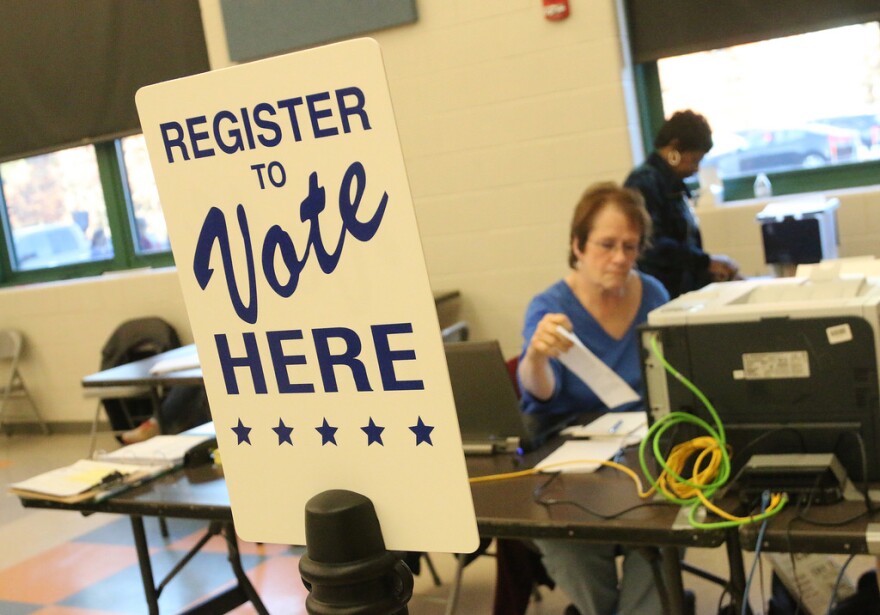The New Hampshire Supreme Court says a new law that prevents the state's voter database from being subpoenaed as evidence in ongoing lawsuits is valid — which means it can also apply to a case that started before that new prohibition went into effect.
The database became a flashpoint in an ongoing lawsuit challenging the voter registration law known as Senate Bill 3, which adds new steps to the registration process.
Lawyers for the New Hampshire Democratic party and the local chapter of the League of Women Voters — who were behind the lawsuit — wanted to use information from the database to analyze how SB3 impacted registration patterns among different demographic groups.
They agreed to redact certain sensitive information contained in the database, like social security numbers, and restrict who had access to the data.
But state officials refused that proposal and refused to turn any portion of the database over, even after a lower court judge ordered them to do so.
In April 2018, state officials asked the New Hampshire Supreme Court to weigh in on whether the lower court “err[ed]” in ordering the state to produce the database as part of the voting lawsuit. About a month later, the higher court agreed to take up that question.
But in the meantime, Republicans in the New Hampshire Legislature moved to amend the law governing how the database could be used to explicitly block it from being shared through “a subpoena or civil litigation discovery request.”
By the time the state supreme court heard arguments on the use of the database and issued its ruling on the matter, the law restricting the use of the database had taken effect — and the court determined they had “no legal basis upon which we could fail to give effect to the legislation.”
In other words, the state — which had not yet turned over the database — would not have to do so moving forward.
The issue hasn’t been put to rest at the Statehouse, though. Democratic Sen. Dan Feltes has filed a bill to carve out circumstances under which the voter database could be used as part of a lawsuit.
Under the new bill from Feltes, the database would be shielded from the legal discovery process “except when a court of competent jurisdiction finds that limited release of the data, excluding names and social security numbers, is reasonably necessary to determine whether the right to vote is being infringed upon and to protect the right to vote from such infringement.” That bill’s first hearing is scheduled for Jan. 30.
Republican legislators, meanwhile, issued a series of press releases applauding the New Hampshire Supreme Court's decision as a victory for voter privacy.
“We should always be mindful of protecting the privacy of our citizens, especially when it is out of state, special interest groups trying to get their hands on sensitive information," said Sen. Regina Birdsell, of Hampstead. "There is no reason for partisan groups from Washington DC to have access to the Social Security and driver’s license numbers of New Hampshire voters and any attempt to do so should be immediately dismissed."








